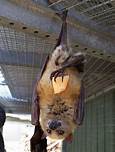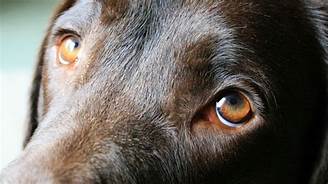Can You Have a Tasmanian Devil as a Pet?
Tasmanian devils are iconic Australian marsupials known for their fierce appearance and unique vocalizations. Their wild and unpredictable nature has made them a popular subject of fascination and curiosity. However, keeping a Tasmanian devil as a pet is not a wise or practical idea. Here are several reasons why:

Temperament and Behavior
1. Wild and Unpredictable: Tasmanian devils are wild animals with a reputation for being aggressive and unpredictable. They are not domesticated and can exhibit sudden changes in behavior, making them potentially dangerous to humans.
2. Territorial and Solitary: Tasmanian devils are territorial and solitary animals. They do not form social bonds and can become aggressive toward other animals, including humans, if they feel their territory is threatened.
Diet and Nutrition
1. Carnivorous Diet: Tasmanian devils are obligate carnivores, meaning they must eat meat to survive. Their diet consists primarily of small mammals, birds, reptiles, amphibians, and insects. Providing a balanced and appropriate diet for a Tasmanian devil in captivity is challenging.
2. Specialized Digestive System: Tasmanian devils have a unique digestive system adapted to their carnivorous diet. They lack the enzymes necessary to digest plant material efficiently, making it difficult to provide them with a healthy and nutritious diet.
Legal and Ethical Considerations
1. Legal Restrictions: In most countries, it is illegal to keep Tasmanian devils as pets due to their wild and potentially dangerous nature. Keeping a Tasmanian devil without the proper permits and licenses can result in legal consequences.
2. Ethical Concerns: Keeping wild animals in captivity raises ethical concerns regarding their welfare and quality of life. Tasmanian devils are not suited for domestication and may suffer from stress, boredom, and inadequate stimulation in captivity.
Conservation Status
1. Endangered Species: Tasmanian devils are classified as endangered by the International Union for Conservation of Nature (IUCN). Their populations have declined significantly due to habitat loss, disease, and persecution. Keeping Tasmanian devils as pets contributes to the demand for these animals and potentially exacerbates their conservation status.
Alternatives to Pet Ownership
Instead of keeping a Tasmanian devil as a pet, consider the following alternatives:
1. Observe Them in the Wild: Visit wildlife sanctuaries, zoos, or national parks where you can observe Tasmanian devils in their natural habitat.
2. Support Conservation Efforts: Contribute to organizations dedicated to protecting Tasmanian devils and their habitats. You can donate, volunteer, or raise awareness about their conservation status.
3. Educate Yourself: Learn more about Tasmanian devils and their importance in the ecosystem. Share your knowledge with others to promote understanding and appreciation for these unique animals.
In conclusion, keeping a Tasmanian devil as a pet is not a responsible or ethical choice. These wild and unpredictable animals are not suited for domestication and can pose a risk to humans and themselves. By respecting their wild nature and supporting conservation efforts, we can help ensure the survival of these endangered marsupials.
Declaration: All article resources on this website, unless otherwise specified or labeled, are collected from online resources. If the content on this website infringes on the legitimate rights and interests of the original author, you can contact this website to delete it.





